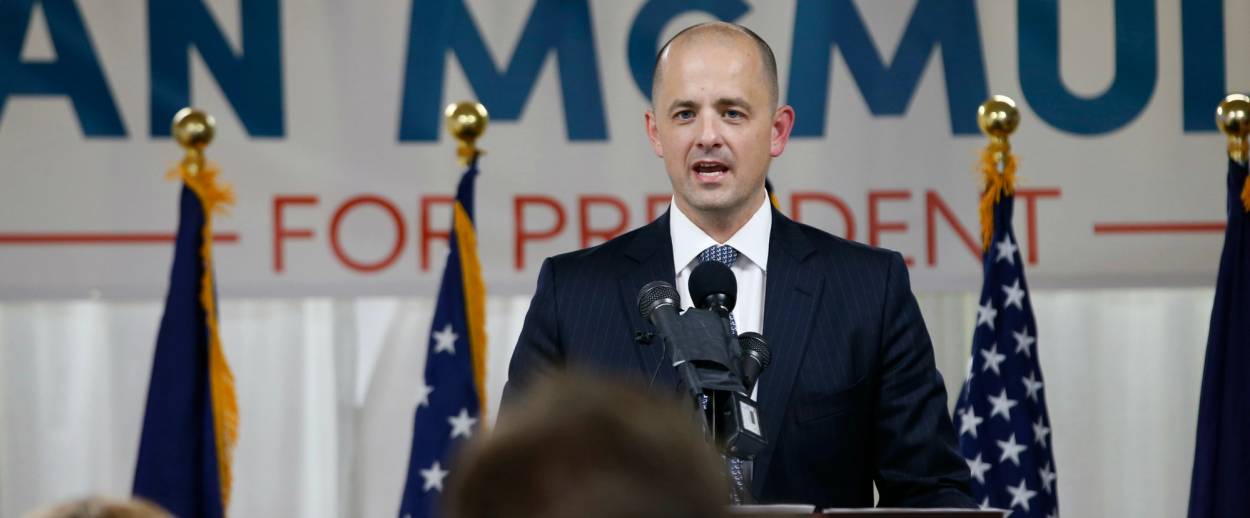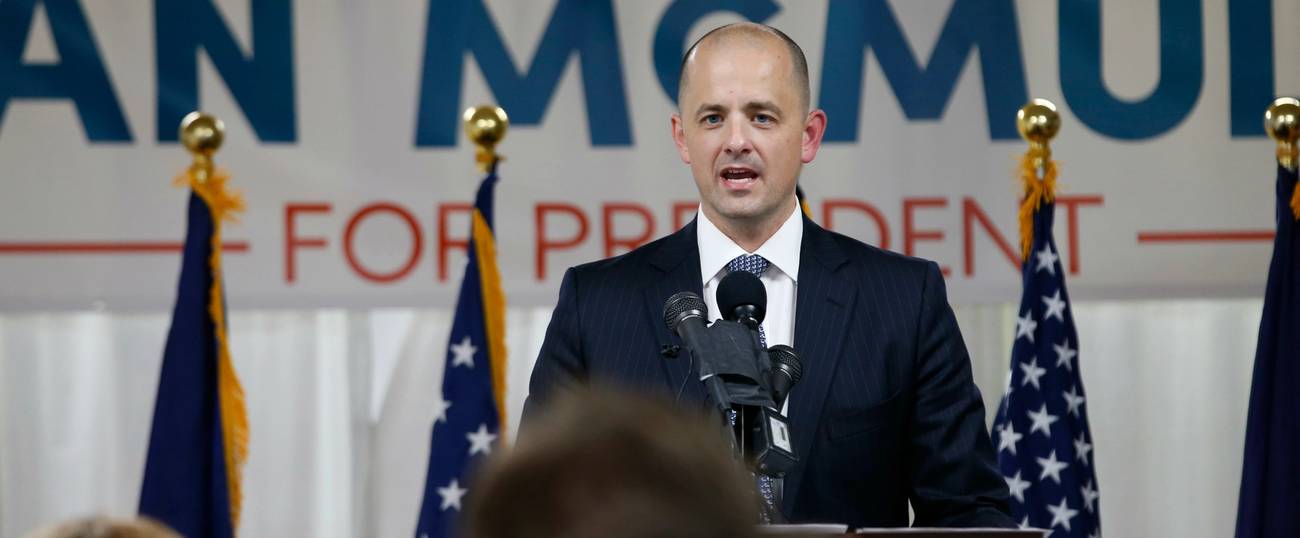A Mormon and a Jew Are Poised to Be the First Third-Party Presidential Ticket to Win a State Since 1968
Conservative anti-Trump contender Evan McMullin and running mate Mindy Finn may take Utah and do what Ralph Nader and Ross Perot could not




Bernie Sanders’ campaign ended months ago, but at least one Jewish participant in this reliably horrific presidential election still has the chance to make history on November 8th. According to an Emerson College poll published this week, Evan McMullin, the independent conservative candidate for president, holds a slim lead over Donald Trump in his home state of Utah, topping Trump 31% to 27%. If McMullin were to win The Beehive State, the ex-CIA agent and former director of the House Republican Conference would snag six entire electoral votes—as would his running mate, former Republican strategist (and, we should note, member of the Tribe) Mindy Finn. This would be the first time since a maverick elector cast a vote for Libertarian John Hospers in 1972 that a third-party candidate took home an electoral tally, something that such one-time household names as John Anderson, Ross Perot, and Ralph Nader couldn’t accomplish. (In an ironic reversal, the last third-party candidate to win a state was segregationist George Wallace in 1968.)
It’s fitting that this election season could end with such a rarity. Anderson, Perot, and Nader were nationally prominent figures when they launched their independent bids for the presidency. But Perot, who got 19% of the popular vote in 1992, was up against incumbent president George H.W. Bush and charismatic Arkansas governor Bill Clinton. Anderson ran against the Ronald Reagan and Jimmy Carter in 1980. Third-party options aside, both elections offered a compelling binary choice between fairly traditional candidates. If McMullin and Finn win Utah, it would underscore the widespread dissatisfaction at the Republican and Democratic candidates, who at one point were the two least-popular presidential nominees in history.
The unique dynamics of the 2016 race benefit McMullin in another respect: as Noah Feldman recently noted in Bloomberg View, solid-red Utah has seen through Donald Trump to a degree that few other places have, largely thanks to the state’s sizable Mormon population, a religious demographic that, Feldman notes, is “genuinely repulsed by Donald Trump.” Trump has exposed conservative ideology as being fluid and conditional for GOP voters and many of their elected leaders. Not so with Utah’s Mormons, who seem unwilling to lower their standards of moral behavior for the New York real estate developer’s benefit. Mormons are also sensitive to the scapegoating of other religious groups: As Feldman writes, the church came out forcefully against Trump’s proposed ban on all Muslim travel to the US, mindful, perhaps, of the Mormon community’s all-too-recent history of persecution here in the US.
McMullin, a Mormon who, by his own telling, once spoke at least some conversational Arabic, is an anti-Trumpian figure: someone who’s conservative without seeming vindictive, petty, or inward-facing. In an interview with Glamour, his running mate Finn struck an anti-Trumpian, cosmopolitan tone. “We believe that everybody is equal and valuable in this country,” Finn said, adding that “We welcome immigrants, we celebrate that we are a country of immigrants and a melting pot.” Jewish conservatives have been some of the most energetic opponents of Trump—and have absorbed a sustained campaign of harassment from his supporters.
In 2016, members of two fairly small religious minorities have given up careers in Republican politics to oppose Donald Trump, and it would be one of the election season’s more encouraging data-points if they somehow proved that their vision for the country was more appealing than The Donald’s in what is one of the most conservative and Republican-voting states in America.
Previous: Conservative Anti-Trump Candidate Evan McMullin Taps Jewish Republican Strategist as Running Mate
Meet Evan McMullin, the Ex-CIA Officer Who Just Launched a Conservative Challenge to Trump
Armin Rosen is a staff writer for Tablet Magazine.